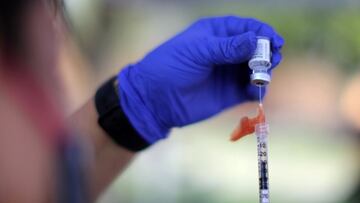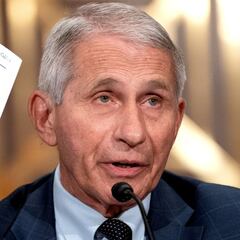Pfizer CEO explains a vaccine-resistant coronavirus variant is "likely" to emerge
Pfizer CEO Albert Bourla says that the company is prepared for a novel covid-19 variant which could evade protection provided by the vaccine.

Viruses are in constant evolution, as they move through the population, viruses develop mutations which could enable them to spread more easily or to escape detection by the body’s immune system and the coronavirus is no different. The WHO currently considers four as “Variants of Concern” due to their increased transmissibility and potential to evade protection offered by covid-19 vaccines or natural immunity acquired from prior infection.
The Delta variant is the most recent addition to that list and has made rapid gains across the globe, especially in areas with low vaccination rates. Although all the authorized covid-19 vaccines provide protection from serious illness, breakthrough cases associated with the Delta variant have been reported, resulting in the possibility of the fully vaccinated spreading the virus. Addressing these concerns in a recent interview, the CEO of Pfizer explained how the pharmaceutical company is trying to stay one step ahead of the virus.
Also see:
- Dr. Fauci marks spring 2022 as a possible date when a return to normal life could be expected
- Covid-19 vaccine approval opens door for further vaccine mandates
- Can you donate blood after the covid-19 vaccine?
- Why can’t kids get vaccinated?
Vaccine-resistant covid-19 variant is "likely" to emerge
Pfizer CEO Albert Bourla told FOX News that the company’s scientists are actively analyzing new variants that emerge around the world “getting their hands around” them to see if one of them can escape the protection provided by the Pfizer-BioNTech covid-19 vaccine. So far, they haven’t identified any variant that can fully evade the immune response created by the vaccine but added “we believe that it is likely that one day, one of them will emerge.”
Pfizer CEO Dr. Albert Bourla says that a vaccine-resistant COVID variant will “likely” emerge. pic.twitter.com/TQhITNY0FM
— The Recount (@therecount) August 24, 2021
Bourla explained that the company has the capability to develop a “tailor-made” variant-specific vaccine within 95 days from identifying a "variant of concern".
Covid-19 booster shots
Although the three authorized covid-19 vaccines provide strong defense against the virus research has been showing protection waning over time. The Biden administration is preparing to administer a third dose of the Pfizer and Moderna vaccines in late September pending approval from the FDA and the CDC advisory committee.
U.S. plans COVID-19 booster shots at six months instead of eight - WSJ https://t.co/oJII9B2UvM pic.twitter.com/TRJ6Cb2Myn
— Reuters (@Reuters) August 26, 2021
Related stories
A decision on the need for a second shot of the one-dose Johnson & Johnson vaccine is expected in a few weeks. On Wednesday the company released findings from its own research on a potential booster shot. The company’s data showed a ninefold increase of antibodies when a second dose of its vaccine was administered six months after the first compared with the initial protection provided.
Pfizer and its partner BioNTech in a joint statement said they plan to seek approval for booster shots for people 16 and older this week. Their research showed a threefold increase in antibodies after a third dose of their vaccine was given.
- Pfizer
- BioNTech
- Johnson & Johnson
- Joseph Biden
- Science
- Pharmaceutical industry
- Coronavirus Covid-19
- Vaccines
- United States
- Biotechnology
- Pharmacy
- Pandemic
- Coronavirus
- Vaccination
- Virology
- Outbreak
- Infectious diseases
- North America
- Preventive medicine
- Microbiology
- Diseases
- Medicine
- Enterprises
- America
- Economy
- Health
- Biology
- Life sciences
- Industry


